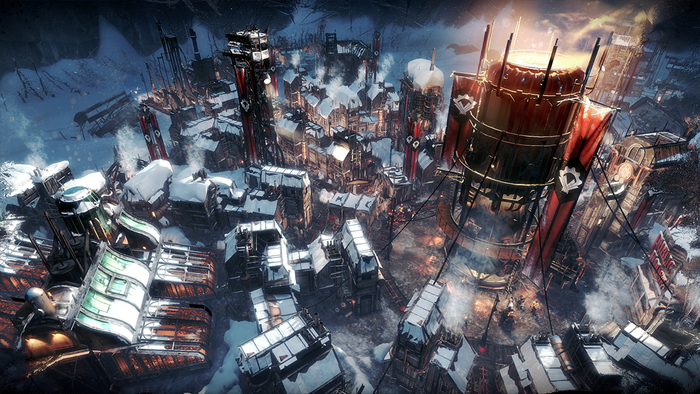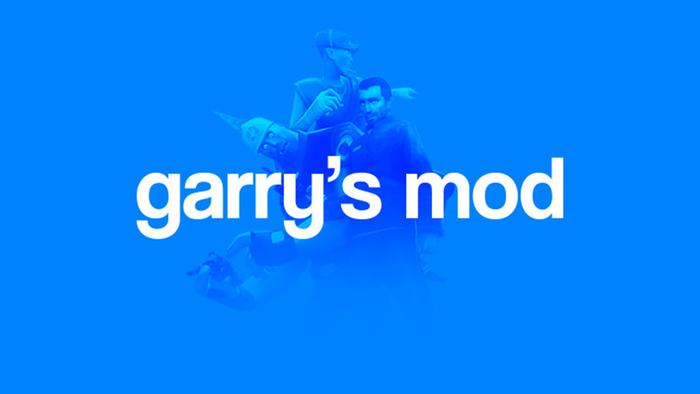The movie tie-in Wanted: Weapons of Fate is unusual in a few key ways, and producer Pete Wanat talks the hows and whys -- including why most movie games suck.

Last year, Universal Pictures released Timur Bekmambetov's film adaptation of the comic series Wanted -- and this month, Warner Bros. Interactive Entertainment will release GRIN's game adaptation of the film. It's an unusual tie-in arrangement in multiple ways. While most movie-based games are released simultaneously with, or even slightly before, the release of their source films, GRIN's Wanted: Weapons of Fate wasn't even announced until after the film hit theatres. Furthermore, the Universal-produced title is, somewhat surprisingly, being published by the video game arm of Universal's Hollywood movie studio rival Warner Bros. Gamasutra sat down with veteran Universal producer Pete Wanat (Scarface: The World is Yours, The Chronicles of Riddick: Escape from Butcher Bay) to discuss how this unique partnership came about, why most movie games suck, and how GRIN's Barcelona studio became involved. This is an unusual situation for an adaptation in that the movie was already released. How did that come about? Pete Wanat: Originally, Bill Kispert -- my boss at Universal -- had seen the animatics that Timur Bekmambetov did. He does the entire movie in animatic form -- essentially greyscale models of the sets and the characters that can move around very much like stick figures. It's about blocking and mapping and getting an understanding of the flow of the action sequences. Timur was showing Bill this animatic of the train sequence from the movie, where it's going along horizontally on the tracks and Fox's character crashes into the train with a car. On the animatics you can see bullets curving around people and the assassins fighting each other. [Bill Kispert] looked at this and said, "Oh my God, we should be doing this. This is a game." All that was missing was the controller to move it around. When you have a film that says game as much as this one did, especially with the curved bullets, a signature gameplay mechanic you never seen before in a game, that stands out. The only problem is, at that animatic stage, it wasn't far away from principal photography. You are not going to make a game in that timeframe. Well, I shouldn't say that, because as is evidenced by the last 15 years of our industry, oftentimes people do get to that point and say, "Hey, we are going to make a game." And you know what? All those games suck. When you don't give a game based on a movie enough time, you can pretty much lock into cement the amount of suck that's going to happen for those games. One of the first things that they did was say, "Not only are we going to do this game, we are not going to release it with the movie." Not at any point did anybody at Universal say we are going to do this game for the release of the film. No doubt about it. Universal didn't even announce they were doing a game until a week after the movie had launched. How did Warner Bros. become the publisher? It's interesting that Universal, a movie studio, would have Warner, another movie studio, publish its video game. PW: You would have to ask Warner why they want to do a game that another movie studio is doing. From our standpoint, we were asking, "Who understands how to release movie-based games well?" Warner Bros. has a lot of experience doing just that. I worked there back under the Jason Hall administration with Warner Bros. Interactive Entertainment. There was a certain amount of care that they showed movie-based titles. We [now, at Universal,] felt that, 'here is a group that understands it.' The other thing for us is wanting to bring games based on Universal IPs to market -- we don't have any enemies. We're open to work with whomever. Our chief concern is making great games based off films and other IPs, established IPs. I think we can work with Take-Two, Square, Konami, Capcom, Warner Bros. It doesn't really matter as long as that partner shares the same lofty goals that we share, which is when you are making a game based on a movie, make it so that it is great content. Was there any convolution with Activision dropping the Vivendi Universal projects? Was there a handoff there? PW: I did work at Vivendi -- I worked on Scarface and a host of other games prior to that, but unlike other products like Ghostbusters and Riddick, Wanted was never at Vivendi. It was always something that Universal said is special, because we are putting our own money into the game. It didn't have a publisher attached before they started investing in it. Universal picked the developer, picked the project, picked the developer and started working. They didn't wait for an outside publisher to come on board in order to do that. And I think that is dramatically different than what you've seen most games do previously. How was GRIN chosen? It's a bit of an up-and-coming studio these days. PW: Look, I think Swedish development is amazing. I obviously worked with Starbreeze [on The Chronicles of Riddick: Escape from Butcher Bay] and the Swedish development community is a great place to do work. And I say that knowing full well that we used their Barcelona studio on this game. [laughter] But GRIN had done the Ghost Recon [Advanced Warfighter] series on the PC, so we felt they understood guns and gun mechanics, tactics, and strategy. And the team in Barcelona had done some maps for Unreal. So we knew these guys had an established pedigree. But while we wanted someone who was used to working with guns and shooting, we also wanted somebody who had a unique tech background. We didn't want to have to use the Unreal Engine -- not that there is anything wrong with the Unreal Engine, but we wanted a different look for this. We felt GRIN's Diesel Engine, which they were still perfecting, would go a long way for us. It worked really well on 360 as well as PS3, and it looks great and plays really well on the PC. The way you handle curved bullets with mouse and keyboard really feels spot on. And especially creatively, Ulf Andersson at GRIN is one of the great new creative game minds. He really has a way of drilling down core mechanics. It was a combination of all those factors. We felt we could really get the type of vision that we wanted for Wanted out of that. I hope, knock on wood, that we will do more stuff with them. You mentioned you had access to production materials. It seems like that sometimes doesn't occur to the full extent the developer would like. PW: Yeah. I've worked on games on the past where you've gotten stills taken from the set, and that's the most interaction that the developer has. Maybe you'll get a script if you're lucky. Congratulations, you got a fucking script. But that sort of philosophy has led to a lot of very bad game making. It's unfair that movie games have to deal with that. The question I answer most is, "Why do all movie games suck?" Well, go fuck yourself. We treat every game we do as an original property. We take the rules set by the franchise and make the best out of that. [GRIN] was there when they were filming the movie. The developers were walking around, looking at the costumes, taking their own pictures. They got to meet the director. They got to meet the cinematographer. They got to meet the lighting guys. They understood what the idea was, how the movie was going to be lit, what it was going to look like. Then they got to go back and powwow with the rest of their group and fill everybody in. And we kept them involved. Every time something changed with the movie or the story, we brought them to LA to see. GRIN was allowed dailies of the film -- that's almost unheard of. This is one of the primary difference factors for Universal. Universal Interactive Entertainment, the group led by Bill Kispert, has a unique view. [Kispert] treats game developers as his talent, the same way Universal treats writers, directors, actors, and cinematographers as talent. We mix them together and allow them to intermingle. Normally, the thinking is, "You guys can't talk to each other." Fuck that. Blow all that old structure up. Get creatives talking with creatives. When you don't have rules and boundaries that prohibit interaction, you get better stuff. We had artists come over as they were color treating the film and set it up so it matches the levels in the game. Every level, you can go through and you can match A to B to C: Here's what the movie looked like, here's what the concept art looked like, here's what the game looks like. They also went back and looked at what the comic book did. What did [colorist] Paul Mounts do that made that unique look? How did [artist] J.G. Jones draw his figures? We met with [writer] Mark Millar to go through story. So much of the art is inspired by J.J. Jones, one of the truly great comic book artists of our day. Earlier you said that this covers a different time period to the film, but the story material created for the game is considered "official." Is that a difficult process, working with franchise approval and so on? PW: You have to sit down with the creator and know where Timur was coming from when he was writing the backstory. The amount of work that Timur does in order to prep himself to shoot the movie -- I never really had that insight into a director that does that much research. What kind of research? PW: In the comic book, there are super villains grouping. In the movie, there are fraternities that kill one and save a thousand. Timur wrote this backstory for how these fraternities came about; he wrote a history that traces the fraternity of weavers back to the true history of weavers and weaving society, how they were some of the first secret societies. There were these elements that were rooted in history that were actually true. Who does that? Who writes that much information? We were able to have that information and give it to the developer and John Zuur Platten, who wrote our game script. We'd worked with John on Riddick previously. He has a great sensibility for the comic book stuff. He chose to write a story that wasn't a linear narrative. He jumped around. He used characters to tell backstories so we're able to flash back in gameplay and help set up the movie while telling a sequel storyline. It's very ambitious writing. One thing we're conscientious about is that even if the story leaves the player a little bit confused, that's better than spoon-feeding generic stupid game storylines that I'm so fucking sick of. I'd rather have a player leave Wanted saying, "I'm not really sure what happened there," then have them say, "This was so fucking generic." We're going to give our players the benefit of the doubt that they're not stupid and that certain things are left hidden for a reason. I love when people come up to me and ask me, "What is the loom?" Fuck you, I'm not going to midi-chlorian the story for you. I'm not going to tell you the Force is a blood disease. I want that mystery to stay a mystery. Even if I knew, I wouldn't tell you. Some mysteries are better left mysteries.
About the Author(s)
You May Also Like







